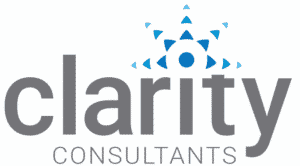[feat-img-left]
I recently read, The Start-Up of You, by Reid Hoffman and Ben Casnocha. Hoffman, the cofounder and chairman of LinkedIn, suggests you think of yourself as “an entrepreneur of your career.”
The reason for the new way of thinking, he explains, is because there’s been a seismic shift in the job market:
For the past 60 years, the job market worked like an escalator. After graduating from college, you landed a job at a firm such as IBM or GE and were groomed and mentored there.
As you gained experience, you moved up in the organizational hierarchy, increasing your salary and job security until you stepped off of the escalator and coasted to an easy retirement, allowing those more junior than you to move up.
That’s all changed.
Reid and Casnocha’s philosophy for developing your career is through competitive advantage, or what you do better than anyone else. Your competitive advantage is comprised of the interplay between your assets, your aspirations and values, and market realities. Your assets include your knowledge, skills, professional connections, reputation, personal brand, and strengths (the things that come easy to you). Your aspirations include your deepest wishes, goals and vision for the future. The market is where you have the least amount of control, but ignoring it won’t make it go away. As Reid sums it up, “If you don’t find risk, it will find you.” He suggests that professionals build career resilience by “introducing regular volatility into your career in order to make the inevitable surprises survivable.” Entrepreneurs and freelancers are more familiar with the concept of volatility, however all professionals need to be able to absorb shocks in this increasingly VUCA (volatime, uncertain, complex and ambiguous) world. Reid recommends joining more groups, taking on side projects and saying “yes” to more opportunities.Here are more suggestions for career development from The Start-Up of You :
- This weekend, conduct a gap analysis of your current skills by assessing where you are and where you strive to be. Determine how you might close the gap through training, work experience or mentoring.
- Update your LinkedIn profile so that your summary statement articulates your competitive advantage. “Because of my [skill/experience/strength], I can do [type of professional work] better than [specific types of other professionals in my industry].”
- Start a personal blog and begin developing a public reputation and portfolio of work that’s not tied to your employer. That way, you’ll have a professional identity that you can carry with you as you shift jobs.
- Schedule three lunch dates in the next few weeks: one with a person a few rungs ahead of you in your industry, one with an old friend you haven’t seen in a while; and one with a person from an adjacent industry whose career you admire.
- Review your aspirations and adjust your goals for next year accordingly. Identify other people with aspirations similar to yours and connect with them, either virtually by following them on LinkedIn or reading their blog, or by meeting in person.
